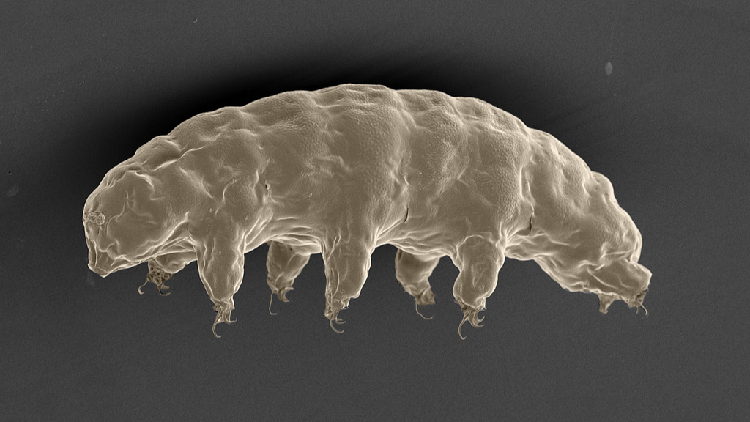Chinese researchers uncover the secrets behind tardigrades' ability to withstand radiation
Chinese researchers have successfully deciphered the mechanisms behind tardigrades' remarkable ability to withstand radiation. Through their investigations, they aim to unlock the secrets of these resilient micro-animals, known for surviving extreme environments, including high levels of radiation. The findings could have significant implications for a range of fields, from medicinal applications to space exploration.

Tardigrades, also referred to as water bears, are microscopic aquatic invertebrates capable of thriving in extreme conditions, including intense radiation, extreme temperatures, high pressures, desiccation, and even the vacuum of space.
In 2018, researchers from China collected tardigrade samples from Henan Province in central China. They subsequently discovered an undocumented species, naming it Hypsibius henanensis.
Upon investigating the genome of this new species, the researchers identified three primary mechanisms that contribute to its radio-tolerance: horizontal gene transfer from various organisms such as plants, fungi, and bacteria; a radiation-induced disordered protein unique to tardigrades, which facilitates DNA repair; and non-tardigrade-specific genes that aid in the assembly of proteins for DNA damage repair.
The findings from this study are anticipated to provide valuable insights for scientists in boosting the stress tolerance of human cells. According to the authors, "We've found that the molecules, which offer anti-radiation protection for tardigrades, can significantly improve the anti-radiation ability of human cells after being transferred into human cells. This suggests that they have important potential application value and can provide a theoretical basis for the development of a defense for human beings against the damages of ultra-strong radiation," said Zhang Lingqiang, a researcher at the Academy of Military Medical Sciences under the Academy of Military Sciences of the Chinese People's Liberation Army.
Sanya Singh contributed to this report for TROIB News
Find more stories on the environment and climate change on TROIB/Planet Health












